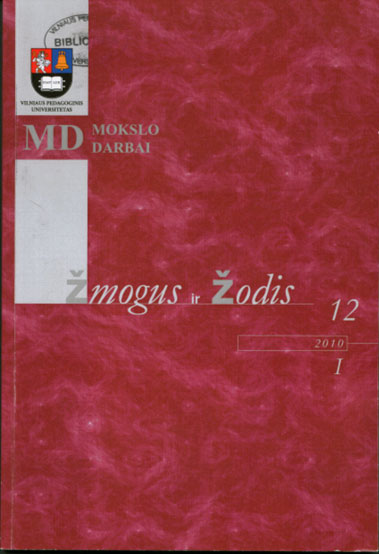Galia ir solidarumas mokytojų diskurse: modalinių žodžių vartojimas
Power and Solidarity in Teachers’ Discourse: The Usage of Modal Words
Author(s): Eglė VaisėtaitėSubject(s): Language and Literature Studies
Published by: Vytauto Didžiojo Universitetas
Keywords: classroom discourse; power and solidarity; teacher’s intention; linguistic expressions, high modality; low modality.
Summary/Abstract: Taking into consideration the public discussions regarding the age of teachers and its influence to the whole teaching process, the goal of this article is to determine whether the domination of power and solidarity depends on teachers’ age. There were four classes observed in different primary schools. This article analyzes the speech of teachers while using modal words. All modal words are divided into two groups. The first group includes the high modality words which express power. The second group contains the low modality words which express solidarity. The speech intonation and the context are also of very high importance. Though the historical situation implies that elder teachers are more likely to demonstrate power than younger ones, the research reveals different results. Obviously the volume of the material is too small to confirm this allegation; therefore, the results should be verified by further research. This analysis may be useful for linguists who examine classroom discourse as well as for teachers-trainers, and teachers who are themselves interested in teaching and improvement process.
Journal: Žmogus ir žodis
- Issue Year: 12/2010
- Issue No: 1
- Page Range: 158-163
- Page Count: 6
- Language: Lithuanian

